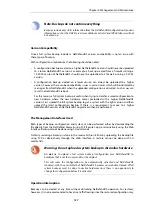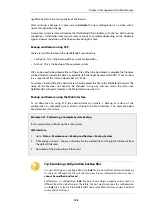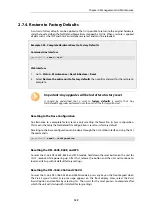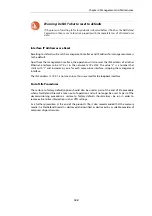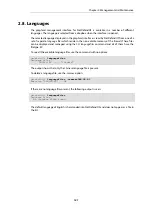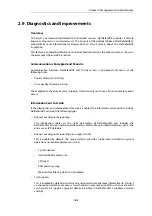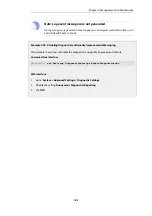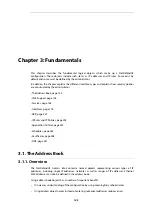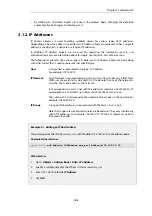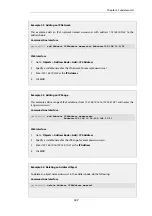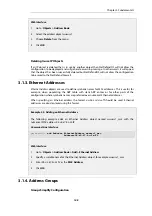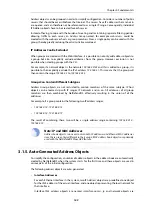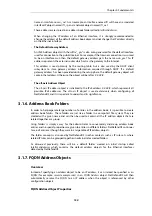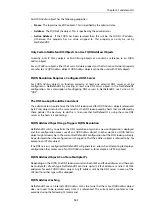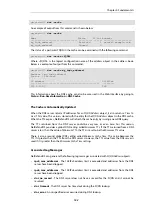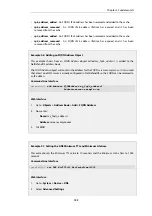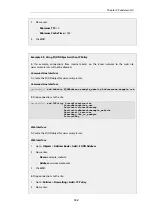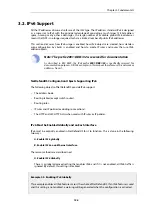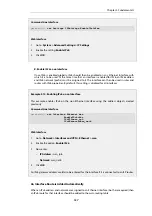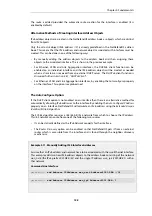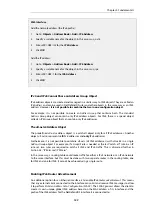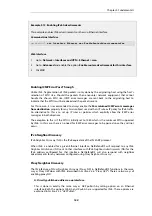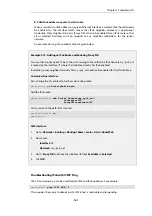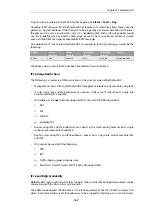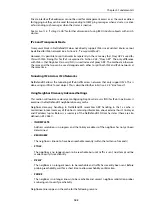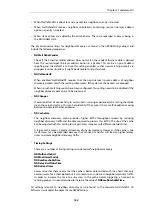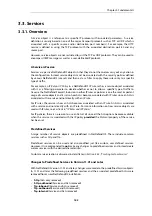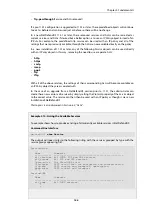
An
FQDN Address
object has the following properties:
•
Name - The logical name of the object. This is specified by the administrator.
•
Address - The FQDN of the object. This is specified by the administrator.
•
Active Address - If the FQDN has been resolved then this will be the FQDN's IP address.
Otherwise, this property has no value assigned to. This property can only be set by
NetDefendOS.
Only Certain NetDefendOS Objects Can Use FQDN Address Objects
Currently, only
IP Policy
objects or
Mail Altering
objects can contain a reference to an
FQDN
Address
object.
For an
IP Address
object, either the
Source Network
property or the
Destination Network
property
can refer to an
FQDN Address
object.
FQDN Address
objects cannot be used with
IP Rule
objects.
FQDN Resolution Requires a Configured DNS Server
For
FQDN Address
objects to function correctly, at least one external DNS server must be
configured in NetDefendOS by creating at least one
DNS Server
object in the NetDefendOS
configuration. For a description of configuring DNS servers in NetDefendOS, see
Section 3.10,
The DNS Lookup Should Be Consistent
The administrator should ensure that the DNS lookup used for
FQDN Address
objects referenced
by
IP Policy
objects returns the same results as the DNS lookup used by hosts that are affected by
those policies. The best way to do this is to ensure that NetDefendOS is using the same DNS
server as the hosts it is protecting.
FQDN Address Object Usage Triggers FQDN Resolution
NetDefendOS will try to perform the DNS resolution only when a new configuration is deployed
and that configuration makes use of an
FQDN Address
object. In other words, an
FQDN Address
object might already be in the current NetDefendOS configuration but the DNS lookup will only
be performed when the configuration is changed so that the address object is referred to by, for
example, an
IP Policy
object.
If no DNS server is configured, NetDefendOS will generate an error when attempting to deploy a
configuration that makes use of an
FQDN Address
object in, for example, an
IP Policy
object.
FQDN Address Objects Can Store Multiple IPs
Depending on the FQDN, the DNS lookup can return both IPv4 and IPv6 addresses and there can
be multiple IPs of each type. NetDefendOS can store up to 128 IPv4 addresses and/or 128 IPv6
addresses for each
FQDN Address
object. Any IP address sent by the DNS server in excess of the
128 limit for either type will be dropped.
FQDN Address Caching
NetDefendOS uses an internal
FQDN Address Cache
to ensure that the same
FQDN Address
object
does not need to be resolved every time it is referenced. The current cache contents can be
examined using the following CLI command:
Chapter 3: Fundamentals
151
Summary of Contents for NetDefendOS
Page 30: ...Figure 1 3 Packet Flow Schematic Part III Chapter 1 NetDefendOS Overview 30 ...
Page 32: ...Chapter 1 NetDefendOS Overview 32 ...
Page 144: ...Chapter 2 Management and Maintenance 144 ...
Page 284: ...Chapter 3 Fundamentals 284 ...
Page 392: ...Chapter 4 Routing 392 ...
Page 419: ... Host 2001 DB8 1 MAC 00 90 12 13 14 15 5 Click OK Chapter 5 DHCP Services 419 ...
Page 420: ...Chapter 5 DHCP Services 420 ...
Page 573: ...Chapter 6 Security Mechanisms 573 ...
Page 607: ...Chapter 7 Address Translation 607 ...
Page 666: ...Chapter 8 User Authentication 666 ...
Page 775: ...Chapter 9 VPN 775 ...
Page 819: ...Chapter 10 Traffic Management 819 ...
Page 842: ...Chapter 11 High Availability 842 ...
Page 866: ...Default Enabled Chapter 13 Advanced Settings 866 ...
Page 879: ...Chapter 13 Advanced Settings 879 ...

